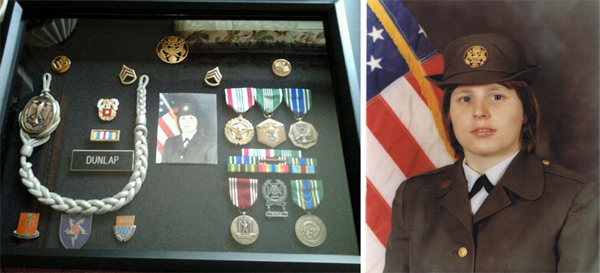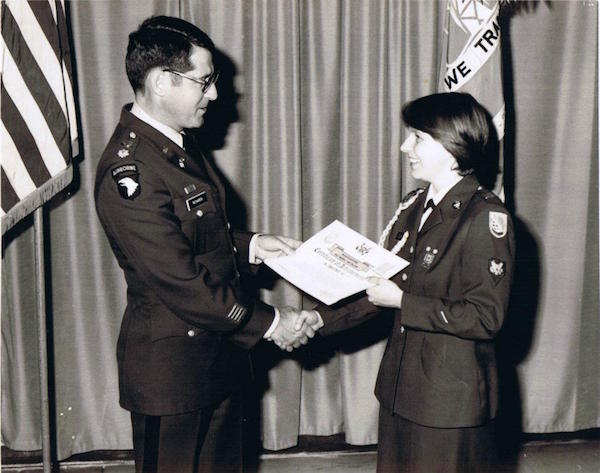
Maine veteran Peggy Dunlap earned several medals for her distinguished service in the Army from 1977 to 1987, but unlike the Vietnam War veterans before her and the Iraq War veterans after her, there’s currently no medal to recognize the war in which she and many others served: the Cold War.
Congresswoman Chellie Pingree is working to remedy that lack of recognition by joining her Republican colleague David Young of Iowa in introducing the Cold War Medal Service Act. The legislation would authorize a service medal for those who served in the military between September 1945 and December 1991.
“Veterans don’t serve in the military with the goal of earning medals, but I think those awards are still important. Some medals recognize an individual’s actions and sacrifices while others acknowledge the significance of military efforts they took part in,” said Pingree. “There’s no such medal for the Cold War, which has left many veterans from that era feeling like their service has been forgotten. They were instrumental in defending our country during a dangerous period of constant threats. Their service involved many kinds of sacrifices and I think it’s time we recognize those veterans for it.”
One such veteran is Peggy Dunlap of Waterboro. Dunlap served in the U.S. Army from 1977 to 1987, rising through the ranks to Staff Sergeant by the time she was medically retired. As a technician troubleshooting and fixing communications systems, she was stationed in Germany, Florida, and South Korea. She also deployed to other places around the world, including Egypt and Honduras.

Dunlap is proud of the medals she earned with her distinguished service—including the Defense Meritorious Service Medal, the Army Commendation Medal, and the Army Achievement Medal—but says a Cold War Service Medal would acknowledge veterans of her era in an important way.
“I hope the time I served is recognized, not only for my sake but for the other veterans who fell between other wars,” Dunlap said. “Like other veterans, we gave up our civilian lives to put on a uniform. We went where we were told to go and did what were told to do. But we aren’t recognized for it in the same way other veterans are because our country wasn’t officially at war at the time. It is not just a medal in my eyes. It is a way my country can show how much they appreciated my service to this great nation.”
Under the bill, eligible veterans had to have either:
· Served on active duty for 24 consecutive months during the Cold War;
· Deployed outside the continental U.S. for a period of at least 30 days during the Cold War; or
· Been a member of a reserve unit called to active duty to participate in exercises or operations directly related to the Cold War.
Next of kin could also receive the medal if an eligible veteran has passed away.


